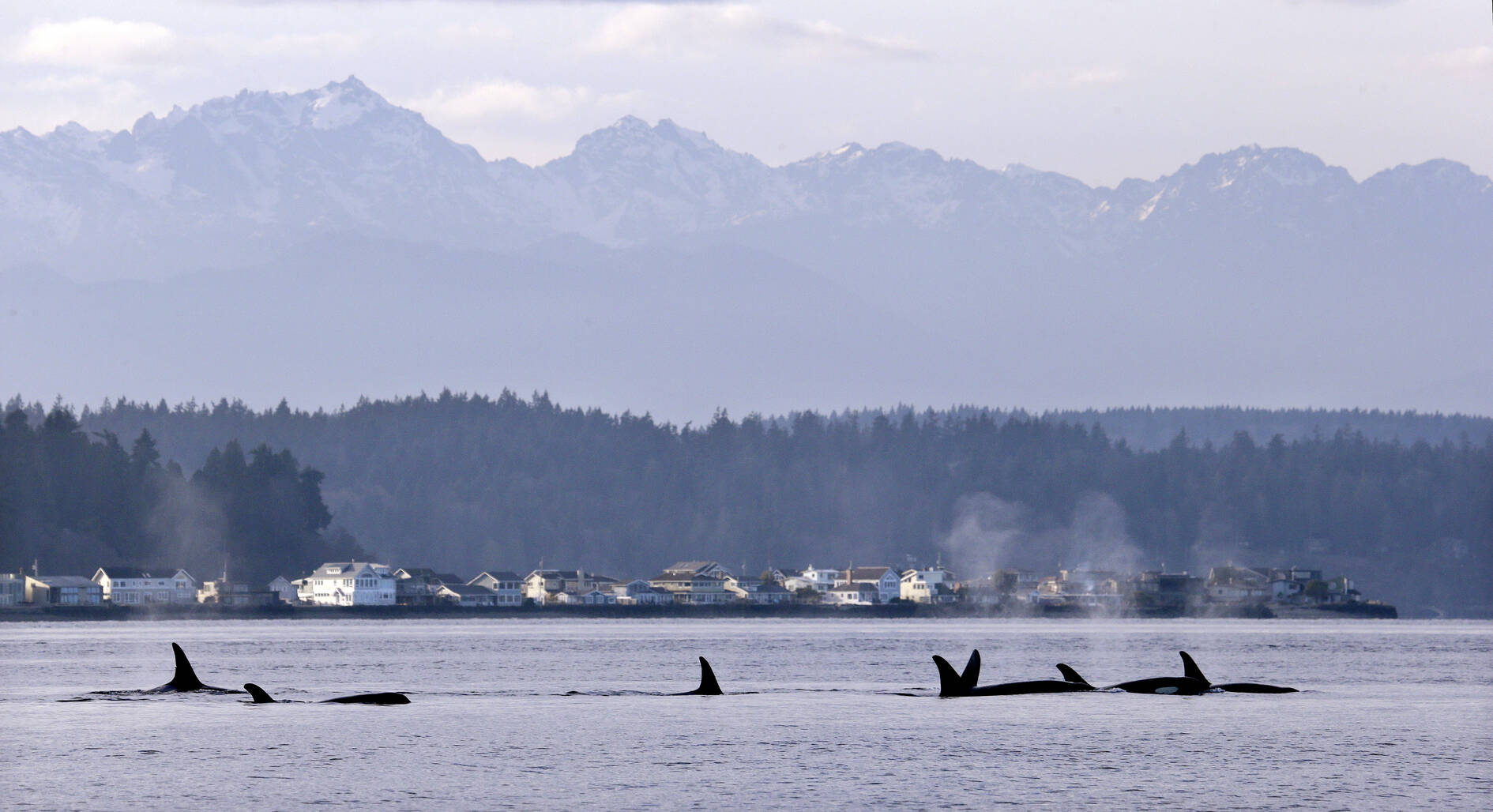SEATTLE — A federal court ruling this week has thrown into doubt the future of a valuable commercial king salmon fishery in Southeast Alaska, after a conservation group challenged the government’s approval of the harvest as a threat to protected fish and the endangered killer whales that eat them.
The ruling, issued Monday by U.S. District Judge Richard Jones in Seattle, said NOAA Fisheries violated the Endangered Species Act and other environmental law when it approved the troll fishery.
The ruling means the federal agency will have to consider anew the effects of the fishery on orcas and on protected Puget Sound and Columbia River salmon stocks and whether a plan to offset the harvest by releasing more king salmon from hatcheries is sound.
It’s unclear whether trollers in the $800 million industry will be allowed to continue fishing for kings, also known as Chinook, while that happens. The court is expected to begin considering remedies for the agency’s legal violations in the next few weeks.
“We applaud Judge Jones’ ruling that is finally calling into question decades of unsustainable Chinook harvest management in Southeast Alaska and marks a watershed moment for the recovery of Southern Resident orcas and wild Chinook,” said Emma Helverson, executive director of Wild Fish Conservancy, the group that challenged the approval of the fishery.
NOAA Fisheries said Wednesday it is still reviewing the decision. In a written statement, the Alaska Department of Fish and Game said it was considering an appeal.
“We have a responsibility to look out for our fisheries and the Southeast coastal communities and families that rely on them,” said Commissioner Doug Vincent-Lang.
Chinook, the largest of the Pacific salmon species, make up the bulk of the diet for endangered orcas in the waters of the Salish Sea between Washington state and Canada. Due to causes that include overfishing, dams, development and pollution, king salmon runs in the Northwest are at a small fraction of their historical abundance, and the orcas have suffered in turn, with just 74 whales remaining and scientists warning of extinction.
While the endangered Southern Resident Killer Whales don’t typically venture as far north as Alaska, a huge amount of the Chinook salmon caught in the Southeast Alaska troll fishery — about 97 percent — originate from rivers to the south, in British Columbia, Washington and Oregon. If those fish weren’t caught, many would be available for the orcas to eat as the salmon migrate to their natal rivers to spawn, the Wild Fish Conservancy argues.
In 2019, NOAA Fisheries issued a biological opinion approving the most recent decade-long plan for the commercial troll fishery for Chinook in Southeast Alaska, with harvest limits set during negotiations between the U.S. and Canada.
The agency acknowledged the harvest of Chinook was likely to hurt the orcas and protected Puget Sound and Columbia River king salmon stocks, but it said it would offset the harm by spending about $100 million on habitat restoration and to increase hatchery production of Chinook by 20 million smolts per year, thus providing more food for the whales.
Last year, a magistrate judge who reviewed the case, Michelle Petersen, took issue with that, finding that under federal law, NOAA Fisheries could not rely on hypothetical mitigation measures to offset actual harm to protected species. Because the funding for the restoration efforts was uncertain, because there were no binding deadlines for the mitigation measures and because the agency did not actually study what effect an increase of hatchery production would mean for wild salmon stocks or orcas, that mitigation was legally insufficient.
Jones adopted her recommendations in his opinion Monday and asked her to consider potential remedies. Possibilities include continuing to allow the trollers to fish for Chinook while NOAA fixes the legal errors, banning them from doing so, or something in between. It’s also possible NOAA could be ordered to desist from increasing hatchery production of king salmon unless it demonstrates the mitigation plan is sound.
Around 1,000 permit-holders fish in the Southeast Alaska commercial troll fishery each year, according to court documents, and the industry supports thousands more full-time jobs. The trolling occurs 10 months out of the year, primarily divided between winter and summer seasons. The fishers also go after coho and chum salmon, but Chinook is the most valuable.
The Alaska Trollers Association, which intervened as a defendant in the lawsuit, criticized the Wild Fish Conservancy for filing the lawsuit, saying it had no regard for fisheries in Alaska.
“Our hook and line king salmon fishery is low impact, harvesting one fish at a time, and our harvests are annually limited to about a third of what we historically harvested,” the association said in an email Thursday. “We’ve been fishing for over one hundred years using this method, and are committed to continuing to do so in a sustainable manner. … We will continue to fight to preserve our fishery and our way of life.”
Last fall the Wild Fish Conservancy separately sued the Washington Department of Fish and Wildlife, accusing it of massively expanding hatchery production to increase prey for orcas without undergoing environmental review and procedures required by state law.

